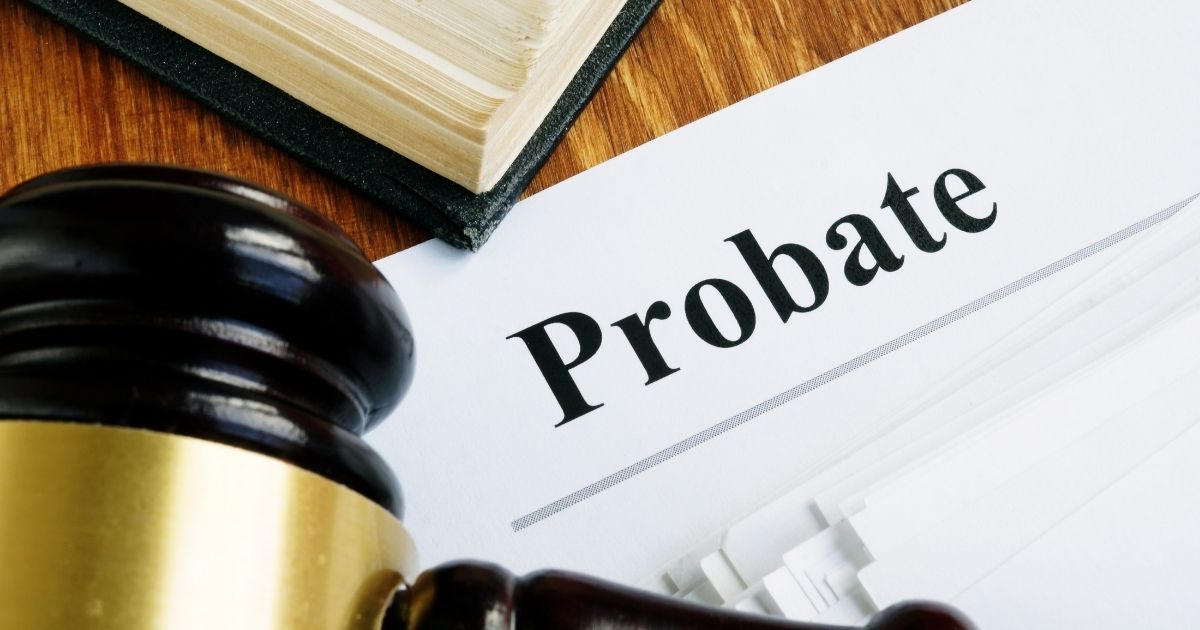If you have recently lost a loved one, there are a number of arrangements that need to be made, from planning a funeral to settling the estate. When a family member’s estate needs to be settled, this is done through the probate process, which is a court-supervised process that ensures that a last will and testament is valid and distributes the deceased’s property according to their wishes. This can be an overwhelming process, particularly when you are grieving the loss of your loved one. It is highly recommended that you consult with an experienced estate planning lawyer who can address all of your questions and concerns, guide you through the probate process, and provide peace of mind knowing that your loved one’s estate will be properly managed and distributed.
What Is Probate?
Probate is the legal process that determines how your loved one’s estate will be distributed after they pass away. This process can occur whether your loved one has a will in place or not. However, the process will likely be much less complicated if there is a will in place since the assets will be distributed to the intended beneficiaries based on the terms of the will. If the deceased does not have a will, the deceased’s property and assets will be distributed according to state laws. Probate issues may arise when administering the estate, so it is always a good idea to work with an estate planning lawyer who can address these issues and ensure that the probate process goes smoothly.
How Do I Prove That a Will Is Valid?
If the deceased has a will in place, you must be able to prove that the will is valid. You can prove the will’s validity by obtaining one or more of the following:
- Self-proving affidavit, which is a notarized statement that witnesses signed when they witnessed the will
- A sworn statement signed by a witness
- Court testimony from a witness
What Are the Steps Involved in the Probate Process?
In most cases, the deceased person will have named an executor in the will. This person will be tasked with handling the probate process. The court will assign an administrator to handle the probate if there is no will. While the timeline can vary significantly based on the circumstances of each case, the probate process in Ohio includes the following six steps:
- File the petition. The first step in the probate process involves filing a petition in the county where the deceased lived at the time of their death. You will need to provide a copy of the will and the death certificate with the filing. Upon receiving the information, the court will schedule a hearing, where the judge will officially open the case and either approve the executor named in the will or appoint an administrator if the deceased died “intestate,” which is a legal term used to describe a person who died without a will.
- Notify interested parties. You will need to provide written notification to all beneficiaries, heirs, and creditors about the decedent’s death and the establishment of probate.
- Inventory assets. Once all parties have been notified, take inventory of the deceased’s assets that will be subject to probate and present them to the court. Examples include:
– Bank accounts
– Retirement accounts
– Stocks and bonds
– Real estate
– Some life insurance policies
– Motor vehicles, including cars, motorcycles, and RVs
– Valuable art collections and other personal effects - Pay off debts. You must notify all creditors and settle any outstanding debts. It is crucial that you thoroughly evaluate and verify all debt claims to make sure they are legitimate. You may need to go through the deceased’s bank accounts and checkbooks to identify all outstanding debts and money owed to the estate. You must also pay any outstanding taxes and a final income tax on the estate. You may consider setting up an estate account to pay these final expenses.
- Distribute the remaining assets. Once all the debts have been settled, the remaining assets can be distributed to the beneficiaries according to the decedent’s will or the laws of intestate succession if there is no will.
- Ask the probate court to close the probate. Once all the debts and assets have been distributed, the final step in the probate process is to ask the court to close the probate so you can distribute the remaining assets to the beneficiaries. You will need to provide the court with an accounting of all activities performed as an executor, including receipts and relevant records. Once the court receives and reviews this information, you may be released from the role of executor.
What Happens if a Will Is Contested?
The probate process runs smoothly in most cases, and the assets are distributed to the beneficiaries. However, a will may be contested if someone with an interest in the estate assets wishes to challenge the terms of the will. Often, this may be a disinherited family member, co-owners of estate property, or creditors claiming unsettled debts. Generally, challenging a will is not recommended, particularly if the will has a no-contest clause. If the will includes a no-contest clause, and a beneficiary challenges the will and loses, they will be automatically disinherited.
Do I Need an Estate Planning Lawyer to Handle the Probate Process?
The probate process can be complex and overwhelming, particularly if you have a vast estate, complicated assets, or disputes over the will or estate. A skilled estate planning lawyer will help you navigate every probate process step, from filing petitions and identifying assets to settling debts and distributing assets to all beneficiaries. If the will is contested or other issues arise, a dedicated estate planning lawyer will resolve the matter and ensure your loved one’s final wishes are respected.
The Blue Ash Estate Planning Lawyers at Wolterman Law Office Assist Clients with the Probate Process
If you lost a loved one and have questions or concerns about the probate process, do not hesitate to contact the Blue Ash estate planning lawyers at Wolterman Law Office. To schedule a free, confidential consultation, call us today at 513-488-1135 or contact us online. Located in Loveland, Ohio, we serve clients in Hamilton County, Fairfield, Norwood, and Forest Park.


